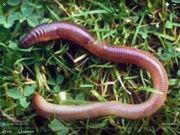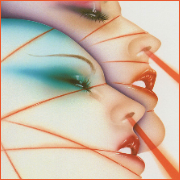(Thread IKs:
PoundSand)
|
willroc7 posted:Thanks for the reply. What's the current consensus on mixing and matching mRNA brands? Guessing there isn't any info for kids, but anything for adults? mRNAs are mostly considered interchangeable by all public health institutions, but there are considerations (mainly by age): https://www.cdc.gov/vaccines/covid-19/clinical-considerations/faq.html posted:Are mRNA COVID-19 vaccines from different manufacturers (Moderna and Pfizer-BioNTech) interchangeable? This mainly comes down to what has or has not been tested for FDA approval. As far as research goes, it is... complicated. This recent research is more or less incomprehensible, and when I read it, it was clear that the much more diverse infection and vaccination history makes clear conclusions difficult compared to earlier. https://www.nature.com/articles/s41598-023-40103-x posted:Class switch towards spike protein-specific IgG4 antibodies after SARS-CoV-2 mRNA vaccination depends on prior infection history
|
|
|
|

|
| # ? May 23, 2024 09:11 |
|

|
|
|
|
NeonPunk posted:Guys, you want to be testing yourself whenever you feel off and immediately get paxlovid. It's all anecdotal I know, I've been reading on social media and one trend that popped out at me is that EG.5 (or whatever variant this is) has a nasty onset timing. Most people get a slight sore throat or tiny cough and test positive, but the symptoms are very mild so they thought it was nbd. Until around 5~ or 6~ days later, that's when the illness immediately hits you like a tsunami wave with severe symptoms. One described his throat being so sore and painful they can't even swallow water without being in pain this is what happened to me. I was only able to get pax later on, after practically begging my doctor. hopefully it still does something to help me clear the virus.
|
|
|
|
dew worm posted:this is what happened to me. I was only able to get pax later on, after practically begging my doctor. hopefully it still does something to help me clear the virus. I am glad you got it in the end, even if it ended up being late  
|
|
|
|
Pingui posted:I am glad you got it in the end, even if it ended up being late thanks…I’m pissed for not advocating for myself more last week. but it was “mild”
|
|
|
|
dew worm posted:thanks…I’m pissed for not advocating for myself more last week. but it was “mild” I was gonna ask after how you were faring Also curious how Harik and family are. Have y’all avoided household spread?
|
|
|
|
Mr Hootington posted:Will be coming home from vacation with covid. As is tradition. Important to stay positive imo
|
|
|
|
Gunshow Poophole posted:I was gonna ask after how you were faring I still have a general "sick" feeling...waiting for more tests to deliver from amazon. I think a negative would help my mental health greatly. Thanks for asking.
|
|
|
|
very good OP! This is all just my opinion but I think it could use more emphasis on long COVID and masking. I would put a long COVID bullet point first on the "information" list.  long covid will gently caress you up (why to avoid COVID) long covid will gently caress you up (why to avoid COVID)even with vaccination, long COVID is a significant threat to long-term health and well being. verbatim from a recent CDC study:
The "what should i buy so i dont get covid" section is excellent. I think it should be second on the list because... OP posted:currently, the best ways to avoid long covid are to rest (seriously rest), to not have severe disease (see above) and to be one of the 90ish% of people who dont get long covid ...is kinda wrong? Per the CDC, "the best way to prevent Long COVID is to protect yourself and others from becoming infected." which of course means masking, ventilation, CR cubes, avoiding indoor eating and drinking, etc.
|
|
|
|
dew worm posted:I still have a general "sick" feeling...waiting for more tests to deliver from amazon. I think a negative would help my mental health greatly. Thanks for asking. hang in there, it was not particularly "funny in a haha way" but funny in a lmao way that I tested positive for nineteen? I think, straight days. was feeling better after about seven.
|
|
|
|
Mr Hootington posted:Will be coming home from vacation with covid. As is tradition. You should go see Blue Beetle
|
|
|
|
The Demilich posted:Yeah I've been looking for stuff related to post recovery sudden death & related information hoping it would ping something related, but there's been no dice as of yet So its been suspected for awhile (casual perusal found studies as far back as 2004) that infections can raise the risk of cardiac events, even before covid, but it never really raised the alarms until, ya know, THE ENTIRE WORLD caught a novel disease that seemed tailor made to screw up your blood/blood vessels multiple times. E.g. quote:Methods: We undertook within-person comparisons, using the case-series method, to study the risks of myocardial infarction and stroke after common vaccinations and naturally occurring infections. The study was based on the United Kingdom General Practice Research Database, which contains computerized medical records of more than 5 million patients. A metastudy on post covid MI quote:
Similar one for strokes and blood clots (this dude loves his metaanalyses) quote:Abstract A review of post-covid cardiovascular complications and possible treatments Too much to quote here but a lot of data on risks after infection. Money shot is: quote:In addition, intense, vigorous exercise, weightlifting, and competitive sports or aerobic activity should be avoided for 3–6 months until resolution of myocardial inflammation by CMR, or troponin normalization is recommended for patients with myocarditis due to COVID-19 (Fig. (Fig.3)3) [9, 195]. American College of Cardiology recommendations for returning to exercise post-covid (its a pdf lol) quote:Asymptomatic (Subclinical) Myocardial Involvement And another scientific article from last year that describes what returning to exercise should look like depending on how severe your infection. quote:Symptom burden is the key. Cases that are asymptomatic at time of testing positive, may develop symptoms over subsequent days. Where individuals have significant symptoms, they should rest and avoid exercise. Those who remain asymptomatic or whose symptoms have resolved or diminished, can commence a graded return to pre-infection activity levels. Resumption of exercise is based on the exercise habits of the individual, prior to infection. As a starting point, individuals should attempt 15 to 30 min of exercise at about 50 % of the intensity that they were used to, prior to infection. If this is well-tolerated, the same should be repeated for the subsequent two days (Days 2 & 3). All going well, exercise intensity can then be increased to about 75 % of the intensity that the individual was used to, prior to infection, from Day 4. The duration can also be increased to 30 or more minutes. If well-tolerated, this again should be repeated on the two subsequent days (Days 5 & 6). If there has been absolutely no adverse response to attempted exercise, the individual could consider resumption of normal pre-COVID-19 exercise habits from Day 7 (see Fig. 1). In elite sport, where athletes have the benefit of close medical supervision, the number of days that each step may be modified. Any unusual exercise intolerance should trigger a pause for 24–48 h, before resuming a graded increase in activity. Persistent exercise intolerance warrants a medical review. quote:GoodRx health
|
|
|
|
no positive yet  hopefully this dry throat is just my mom's second hand smoke. hopefully this dry throat is just my mom's second hand smoke.
|
|
|
|
Covid ftw 
|
|
|
|
Lib and let die posted:You should go see Blue Beetle probably the safest movie to watch because nobody else will be in the cinema to give you covid
|
|
|
|
Buffer posted:She was masking religiously but I don't think it's realistic on our part to think she's going to keep it up. She was the only kid in her middle school doing it so far this week and she's social butterflying hard atm - it was really alienating to her to do it in a way it wasn't last year. Good for her. Try and make a deal with her that she masks for the first two weeks of school and sees what happens with cases/absences. Its quite possible once a ton of kids/teachers are out or showing up coughing up a lung masking might increase enough for her to feel comfortable (or alternately to show her she didn't get sick like literally everyone around her so it works).
|
|
|
|
tested positive for covid this morning but im going in anyway because i dont want to use my sick time unless i really need it. i think theyre all vaxxed and i can do my best to avoid my coworker with lupis. it really sucks because i have baseball tickets for tonight, and i wont be able to cheer as hard
|
|
|
|
gradenko_2000 posted:probably the safest movie to watch because nobody else will be in the cinema to give you covid this was my experience seeing the first film id seen since covid started: nic cage's renfield
|
|
|
|
Al! posted:tested positive for covid this morning but im going in anyway because i dont want to use my sick time unless i really need it. i think theyre all vaxxed and i can do my best to avoid my coworker with lupis. it really sucks because i have baseball tickets for tonight, and i wont be able to cheer as hard you gotta live ur life
|
|
|
|
Al! posted:tested positive for covid this morning but im going in anyway because i dont want to use my sick time unless i really need it. i think theyre all vaxxed and i can do my best to avoid my coworker with lupis. it really sucks because i have baseball tickets for tonight, and i wont be able to cheer as hard Make sure you wash your hands!
|
|
|
|
Oracle posted:Good for her. Try and make a deal with her that she masks for the first two weeks of school and sees what happens with cases/absences. Its quite possible once a ton of kids/teachers are out or showing up coughing up a lung masking might increase enough for her to feel comfortable (or alternately to show her she didn't get sick like literally everyone around her so it works). This is a really great idea, thanks. She knows mask work, she's just feeling some stigma and awkwardness from being the only one wearing one. Setting it up as a bargain with an end date might help her resolve that conflict.
|
|
|
|
getting your betters infected is praxis
|
|
|
|
A friend of mine said he just got his second bivalent booster last week, and that this time Asthma is an acceptable reason to get it (he had to fight last time). Maybe I should go and get one now, I didn't know they were officially giving out second bivalent boosters.
|
|
|
|
redreader posted:A friend of mine said he just got his second bivalent booster last week, and that this time Asthma is an acceptable reason to get it (he had to fight last time). Maybe I should go and get one now, I didn't know they were officially giving out second bivalent boosters. isn't a new one coming out in a couple months? I'd wait until it's out unless it's going to be gatekeeped.
|
|
|
|
Coming out at the end of next month infact
|
|
|
|
Louisgod posted:isn't a new one coming out in a couple months? I'd wait until it's out unless it's going to be gatekeeped. Delivery is set for end of September; eligibility is yet to be defined. Edit to add the reason things are still so up in the air, 1 month before potential kick-off: https://twitter.com/EricTopol/status/1690885431980965888 Pingui has issued a correction as of 16:21 on Aug 16, 2023 |
|
|
|
Al! posted:tested positive for covid this morning but im going in anyway because i dont want to use my sick time unless i really need it. i think theyre all vaxxed and i can do my best to avoid my coworker with lupis. it really sucks because i have baseball tickets for tonight, and i wont be able to cheer as hard I think you’ll find people these days are more accepting of public coughing compared to a few years ago. 3 years ago one of my coworkers coughed due to smoking too much weed on break and they sent him home pending a negative pcr test, but I had something back in the spring and was coughing away at my desk and nobody so much as batted an eye!
|
|
|
|
https://www.wtvr.com/news/local-news/long-covid-rylee-joyce-august-9-202316 and living with Long COVID: When I first got the walker I cried posted:Rylee was diagnosed with long COVID more than a year and a half ago. It's a good thing kids almost never catch COVID or we'd be hosed- wait...they what?!? quote:Many of the young people Stevens has worked with show the classic signs of Long COVID, but persistent fatigue and brain fog appear to be recurring indicators, she said.
|
|
|
|
LentThem posted:https://www.wtvr.com/news/local-news/long-covid-rylee-joyce-august-9-2023 
|
|
|
|
fartman posted:I think you’ll find people these days are more accepting of public coughing compared to a few years ago. 3 years ago one of my coworkers coughed due to smoking too much weed on break and they sent him home pending a negative pcr test, but I had something back in the spring and was coughing away at my desk and nobody so much as batted an eye! as long as you cover your cough with your hand you should be fine
|
|
|
|
Al! posted:i smoked for 20 years, im immune to covid when was your last booster?
|
|
|
|
pillsburysoldier posted:What long covid treatments exist that are any good? Because of how different Long Covid is for everyone (100+ different symptoms), you typically need to find a doctor willing to do trial and error. That said, I've really only heard of one thing that's effective at reducing PEM/PESE, the definitively worst Long Covid Symptom: anti-coags. Unfortunately, these are still being studied and not readily available for long haulers unless you happen to ping on a d dimer. Unfortunately, long covid is resulting in amyloid microclotting, which typically doesn't register. There are also likely other mechanisms at work here as some people regress after stopping anti-coags. All of this is anecdotal and waiting on more robust trials, but Dr Resia Pretoria (South Africa) has published several papers in this area. The Putrino Lab (NY) has also gotten on board. Beyond that, everyone responds to long covid and medications differently. Here are some things that can help relieve symptoms (ask your doctor before taking these) SSRIs/SNRIs: covid passes the brain barrier and can cause swelling in the brain. This is one of the factors that leads to brain fog. Personally, I noticed a huge difference getting on Duloxetine and live a mostly brain fog free existence, even after getting off Duloxetine, unless I trigger PEM. These drugs come with a lot of risks and can permanently reroute things in your brain, so are not to be taken lightly. Antihistamines: MCAS like symptoms are common in long covid patients. The whole range of these work on different parts. I rotate between Claritin and Zyrtec every few months. I avoid benadryl because of studies linking it to dementia. Lesser known T2 antihistamines (Famotidine) also help. I was on PPIs for months until my doctor suggested these because my stomach was in constant pain without PPIs. These helped me transition off, but every now and then things flare up and I need another 2 week course. PPIs: stomach issues are common post covid and these can help reduce problems while you look for answers. Long term these are not good solutions, you can gently caress up your body being on these long term. Vitamins: ok this one is a bit dumb, but take a multi. Also you can develop deficiencies in D or B vitamins after covid. Get your levels tested. I also find Niacin is helpful for some of my less common symptoms (generic skin sensitivity/pain). Things with anti-inflammatory properties. Google this, but we're talking turmeric and other things that just help tamp down inflammation. Also avoiding high inflammation things. Work on eating healthier and it will help everything a little bit. Marijuana. I take about 2mg (edible) daily for pain management, in the evening. It also helps me sleep at night (sleep issues are common). Take too much though, and your HR might spike, so be careful (POTS and POTS-like symptoms are common with post viral issues). Recommended to avoid: Exertion. You've seen me mention PEM. just...take it easy. Learn how to pace. This is the most important skill in a long haulers playbook. Learn your triggers and avoid them. Do less today so that you aren't destroyed tomorrow. Alcohol. Some people can tolerate some, but most long haulers discover it's a trigger. I get hangover symptoms shortly after about 2 beers. High histamine foods: this one will vary by person a lot more, but try to figure out if certain foods are triggering worse symptoms. Tomatoes, chocolate, strawberries, and fermented foods are at the top of this list, so seeing if you are sensitive to those things will usually tell you. Histamines in food function pretty fast, so eliminate these for 2 weeks if you want to try. Most importantly, don't get covid again. We only have informal survey data on this (that I'm aware), but as far as we know, long haulers are more likely to get worse (~60% of respondents) than stay the same or get better. Additional infections can worsen existing symptoms or add new ones. Temiko posted:
Seconding this. Also serious disease is not related to long covid. It is connected with organ damage so get that checked out, but not the "why can't I get out of bed today" long covid symptoms. Here's a list of common LC symptoms I pulled from NHS quote:extreme tiredness (fatigue), feeling short of breath, loss of smell, muscle aches, brain fog, chest pain or tightness, difficulty sleeping (insomnia), heart palpitations, dizziness, pins and needles, joint pain, depression and anxiety, tinnitus, earaches,feeling sick, diarrhoea, stomach aches, loss of appetite, a high temperature, cough, headaches, sore throat, changes to sense of smell or taste, rashes Extreme tiredness/fatigue doesn't really explain it. Here's a well written article from the Atlantic about how bad that can be. Fos, feel free to steal any of this for OP. Malgrin has issued a correction as of 17:00 on Aug 16, 2023 |
|
|
|
Al! posted:tested positive for covid this morning but im going in anyway because i dont want to use my sick time unless i really need it. i think theyre all vaxxed and i can do my best to avoid my coworker with lupis. it really sucks because i have baseball tickets for tonight, and i wont be able to cheer as hard assuming sincerity for the work bit, I'm sorry you are in a work environment where you are not able to follow the CDCs guidance of quarantining at home for 5 days. work sucks and I'd be pissed if I was your coworker
|
|
|
|
You should set up shop in the office of whoever it is that mandated return to office, imo
|
|
|
|
I’m here to spread covid and steal vaginoplasty valor. And I’m all out of valor.
|
|
|
|
it's not really stealing if you need it
|
|
|
|
fartman posted:I think you’ll find people these days are more accepting of public coughing compared to a few years ago. 3 years ago one of my coworkers coughed due to smoking too much weed on break and they sent him home pending a negative pcr test, but I had something back in the spring and was coughing away at my desk and nobody so much as batted an eye! 
|
|
|
|
genericnick posted:Important to stay positive imo
|
|
|
|
Remdesivir trip report: pain in the rear end to get (3.5 hours day 1 and 2 hours day 2) and will give you diarrhea like you have never experienced in your life, but seems to work pretty well? 2/3 days done, after day 1 was still getting worse but feeling not at all sick today other than well, see above.
|
|
|
|

|
| # ? May 23, 2024 09:11 |
|
Tzen posted:[COVID-19] Important to stay positive
|
|
|

































